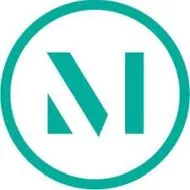The U.S. Court of Appeals for the First Circuit lifted a preliminary injunction against Super Duck Tours, finding the phrase "duck tour" was generic and ultimately that there was no likelihood of confusion between BOSTON DUCK TOURS and SUPER DUCK TOURS. Boston Duck Tours, LP. v. Super Duck Tours, LLC., Case Nos. 07-2078, -2246 (1st. Cir., June 18, 2008) (Lipez, J.).
Boston Duck Tours (BDT) began operating its amphibious vehicle tours in 1994 in Boston. BDT owns several state and federal trademark registrations for the composite word mark BOSTON DUCK TOURS and a composite design mark consisting of the company's name and logo. BDT owns federal registrations on the Principal Register that are subject to disclaimers for the terms "duck" and "tours."
Super Duck Tours (Super) began its operation in 2001 by offering tours in Portland, Maine. Super began operating in Boston in late 2007. Super has one federal registration for the word mark SUPER DUCK TOURS on the Supplemental Register. In its registration, Super disclaimed the phrase "duck tours," apart from the mark.
BDT sued Super under the Lanham Act for trademark infringement of both their word mark and composite marks, along with a host of other federal and state law claims. As part of its suit, BDT sought a preliminary injunction against Super. The district court, as part of its Pignons analysis—see Pignons S.A. de Mecanique de Precision v. Polaroid Corp., (1st Cir., 1981)—relied heavily on a dictionary definition of "duck" which, not surprisingly, did not include any reference to amphibious vehicles. The district court thus concluded that the term "duck tours" was not generic in terms of the services in issue. After completing the rest of the eight-part likelihood of confusion analysis, the district court found BDT established a likelihood of success on the merits and enjoined Super from using "duck tours" and the term "duck" in a two-word or three-word trademark in conjunction with "Boston" or "tours." Super appealed.
In reviewing the determination that "duck tours" was not generic, the First Circuit expressed its appreciation of the time pressure the court faced in ruling on BDT's preliminary injunction motion, but nevertheless concluded that the district court failed to identify and apply the appropriate legal standard and that as a result, its factual conclusion as to whether "duck tours" was generic was erroneous. The district court was faulted for relying on a single dictionary definition of "duck" rather than the primary significance to the relevant public. Specifically, the First Circuit said district court wrongly overlooked relevant evidence in the record during its analysis of whether the term "duck tour" was generic in terms of the tour service in issue.
As explained by the First Circuit, the district court should have considered, as part of its determination, uses by the media and other third parties, uses within the industry generally and uses by BDT itself. With respect to the media and other third parties, the Court found ample evidence in the Boston media that support the position that the term "duck tours" is generic when referring to amphibious vehicle tours. As to the second type of use, the Court found 36 companies that provide a similar type of tour service, 32 of which use the word "duck" in their name and 10 of which use both "duck" and "tour(s)" in their trade name. Finally, focusing on articles provided by BDT to the district court for the purpose of establishing the fame (and its promotion) of the mark, the Court concluded that BDT's evidence only proved that BDT itself used the phrase "duck tours" as a common phrase to describe amphibious sightseeing tours generally as opposed to uniquely identifying BDT's service.
Although the Court went onto address the other Pignons factors, its finding of the phrase "duck tours" as generic essentially sounded the death knell for BDT. For example, turning to the similarity-of-marks inquiry, the Court found that when emphasis is properly placed on "Boston" and "Super" (disregarding the generic term "duck tours") it is clear that the marks are substantially dissimilar. To the extent any similarity exists between the composite marks, that similarity is a result of each party's decision to include in its respective marks a generic phrase that describes the service offered.
The content of this article is intended to provide a general guide to the subject matter. Specialist advice should be sought about your specific circumstances.


